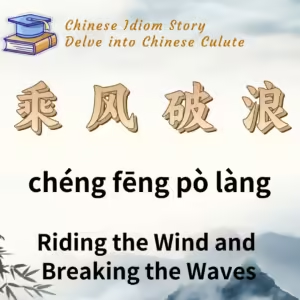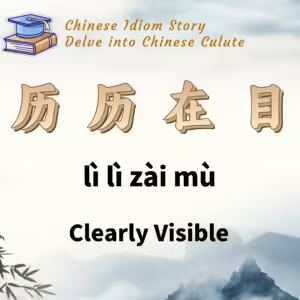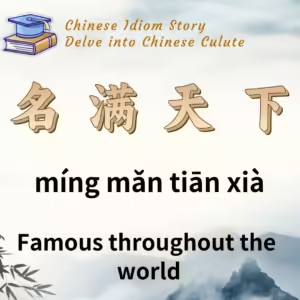
Chinese Idiom: 扬眉吐气 (Yang Mei Tu Qi)
English Translation: Raise eyebrows and exhale joyfully
pīn yīn: yáng méi tǔ qì
Idiom Meaning: This idiom describes the feeling of joy and satisfaction that comes after a long period of oppression or frustration, particularly when one finally has the opportunity to express oneself.
Historical Source: A letter written by Li Bai to Han Zhao Zong (韩朝宗) during the Tang Dynasty, specifically found in 《与韩荆州书》 (Letter to Han Jingzhou).
Idiom Story:
Han Zhao Zong served as the governor of Jingzhou during the Kaiyuan period of Emperor Xuanzong of the Tang Dynasty. He was known for recommending talented individuals, helping many, including Cui Zongzhi and Yan Wu, rise to prominence.
Li Bai, a highly ambitious and talented poet, began his travels across China at the age of 25, producing many renowned works. When he arrived in the Jingxiang region, he decided to write a letter to Han Zhao Zong to recommend himself, hoping to gain an opportunity to showcase his talents.
In his letter, Li Bai praised Han Zhao Zong’s ability to recognize and promote talent. He expressed his own aspirations and intellect, earnestly seeking Han’s support. Despite being a request for assistance, the letter exuded confidence and pride.
Li Bai wrote: “The world sees you as the authority on literary merit and the standard for assessing people’s worth. Once you endorse a work, it becomes recognized as excellent. Why do you hesitate to grant me an audience, allowing me to finally raise my eyebrows and exhale joyfully, soaring to fulfill my ambitions?”
The essence of Li Bai’s appeal was that if he received Han Zhao Zong’s acknowledgment, it would enable him to finally express his long-suppressed emotions and ambitions.
Over time, the phrase “不使白扬眉吐气” (do not let Bai raise his eyebrows and exhale) was simplified into the idiom “扬眉吐气”, signifying the relief and joy experienced when one’s talents and aspirations are finally recognized and appreciated.






